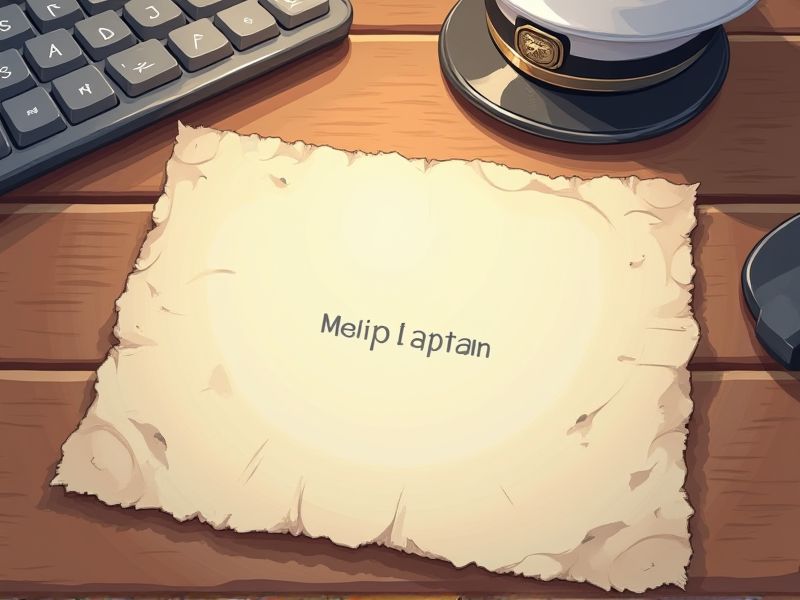
Maritime captains are responsible for the safe navigation and operation of large vessels, making specialized certifications essential to ensure competence and compliance with international regulations. Certifications in navigational skills, safety management, and marine communication are crucial for managing risks and handling emergencies at sea. Regulatory bodies mandate specific qualifications to maintain standards across the global shipping industry and protect maritime environments. These are some key certifications a Maritime captain should pursue.
STCW Basic Safety Training Certification
The STCW Basic Safety Training Certification is crucial for maritime captains because it ensures they possess essential safety skills for emergency situations at sea. International maritime standards necessitate that all seafaring personnel, including captains, are equipped with competencies that prevent accidents and enhance vessel safety. Without this certification, captains are less equipped to manage fire prevention, emergency evacuation, and first-aid incidents on board. Compliance with STCW standards also facilitates a global recognition of maritime credentials, allowing captains to operate legally in international waters.
Certificate of Competency (Master Mariner License)
Obtaining a Certificate of Competency (Master Mariner License) is essential for maritime captains as it certifies their expertise in navigation, ship handling, and safety management, which are critical for safe vessel operation. The license ensures compliance with international maritime regulations, which significantly reduces the risk of maritime accidents. Holding this certification is a requirement for career advancement in the maritime industry, leading to more responsibility and higher earning potential. A recognized license provides credibility and trust among crew members and stakeholders, fostering a more reliable and coordinated onboard environment.
GMDSS (Global Maritime Distress and Safety System) Certification
GMDSS Certification ensures that maritime captains are adept in using advanced communication equipment essential for responding to distress situations at sea. This certification aligns with international safety standards, enhancing overall vessel safety and fulfilling legal requirements. Without GMDSS certified personnel, vessels risk delayed or inappropriate emergency responses, which can jeopardize lives and cargo. Training for this certification equips captains with essential skills for coordinating efficiently with rescue services, reducing potential maritime hazards.
Advanced Navigation Techniques Certification
Advanced Navigation Techniques Certification ensures captains possess the necessary skills to safely maneuver vessels in increasingly congested and dynamic marine environments. With technological advancements in navigation systems, captains equipped with updated certifications can more effectively interpret and utilize real-time data for decision-making. Stringent regulations and compliance standards require documented proficiency, making certification a crucial aspect of a captain's career advancement. Certified captains demonstrate reduced risk of accidents, benefiting maritime operations and enhancing overall safety.
Bridge Resource Management (BRM) Certification
Bridge Resource Management (BRM) Certification enhances a maritime captain's ability to effectively manage and utilize the bridge team's resources, fostering better communication and decision-making. It reduces the risk of maritime accidents by improving situational awareness and teamwork. The certification strengthens a captain's leadership skills, ensuring efficient operations during complex navigational scenarios. Regulations and industry standards increasingly require BRM certification to promote safety and operational efficiency in maritime operations.
Maritime Leadership and Management Certification
Maritime Leadership and Management Certification provides captains with essential skills to effectively navigate complex operational challenges and ensure crew safety. Enhanced decision-making capabilities derived from this certification improve response strategies during unforeseen maritime events. Understanding modern management techniques helps captains efficiently allocate resources and optimize voyage efficiency. Regulatory compliance is bolstered through this certification, aligning captains with international maritime standards and practices.
Cargo Operations and Stowage Certification
Cargo Operations and Stowage Certification ensures that maritime captains have the expertise to safely and efficiently load, secure, and transport cargo, minimizing risks to vessel stability and integrity. This certification is crucial for preventing accidents and cargo damage, which can lead to financial losses and environmental hazards. Proper knowledge of cargo stowage helps captains optimize space and balance on the vessel, enhancing fuel efficiency and overall operational performance. Regulations and standards demand this certification to ensure compliance with international maritime safety laws and guidelines.
Maritime Law and Regulations Certification
Maritime captains need certification because it ensures they understand international laws governing shipping routes and territorial waters. This knowledge helps prevent legal disputes and fines arising from unintentional violations. Certification equips captains with the essential skills for handling emergencies and navigating safely, crucial for protecting lives and cargo. It also boosts credibility and trust among crew members, passengers, and stakeholders in a highly regulated industry.
Shiphandling and Radar ARPA Certification
Shiphandling and Radar ARPA Certification ensures a maritime captain can efficiently manage and navigate vessels under various conditions, reducing the risk of collisions. Proper certification imparts critical skills for interpreting radar data, crucial for decision-making in congested or low-visibility scenarios. The training involved enhances a captain's ability to handle emergencies, such as unexpected mechanical failures or adverse weather. Regulations and international standards often require these certifications to maintain operational safety and competence.
Crisis Management and Emergency Response Certification
Maritime captains face unpredictable sea conditions and emergencies, making crisis management skills critical to safeguard crew and cargo. Certification in emergency response enhances a captain's ability to make informed and rapid decisions during unforeseen incidents such as collisions or onboard fires. Regulatory bodies often require these certifications to ensure compliance with safety standards and international maritime laws. The certification process provides captains with updated practices and technologies, improving overall maritime safety and operational efficiency.
Summary
When you pursue maritime certifications, you enhance your leadership and navigation skills significantly. The certifications can lead to increased job opportunities and higher salary prospects. They ensure compliance with international maritime safety standards, improving vessel safety and efficiency. This validation also bolsters your credibility and reputation in the maritime industry.
